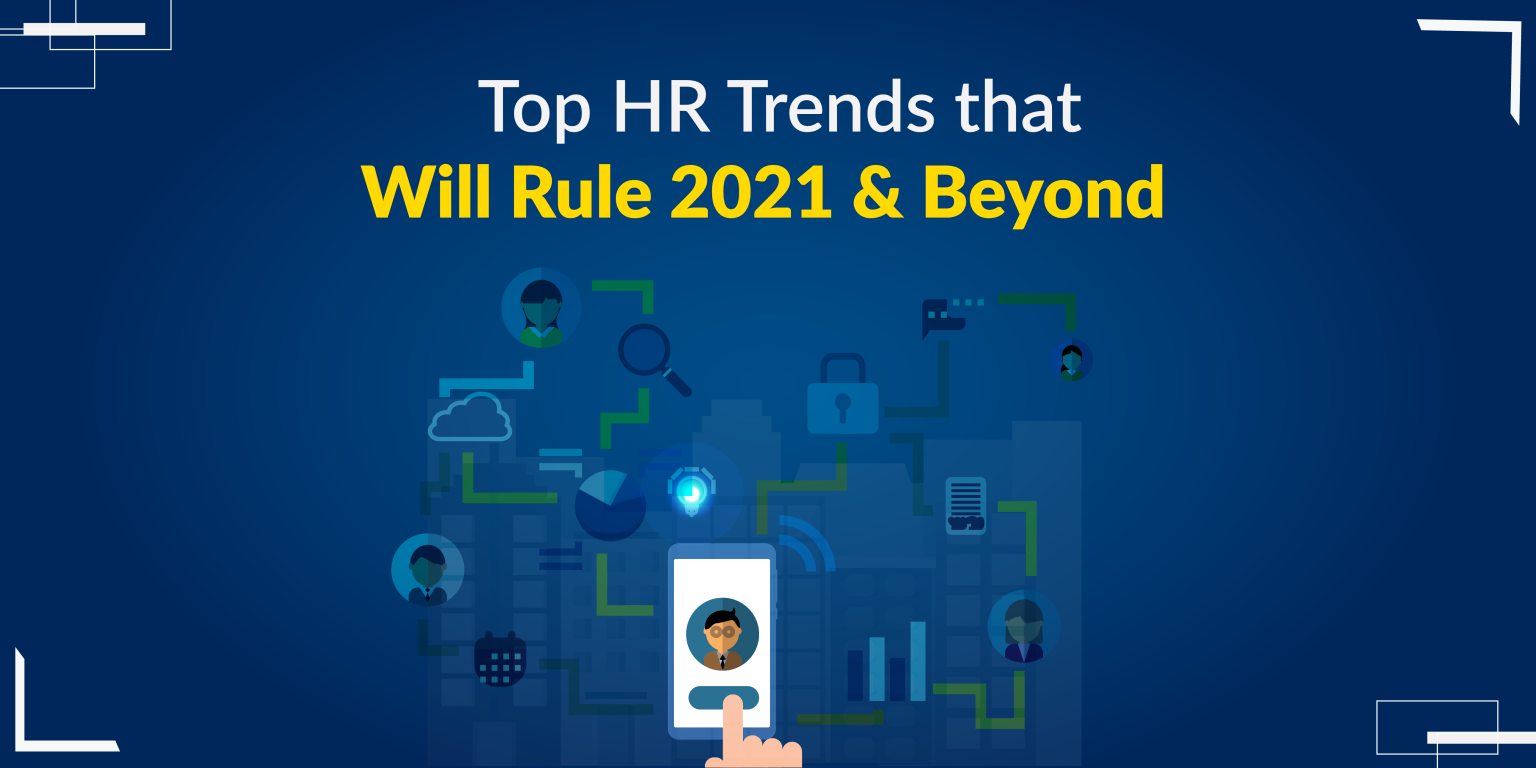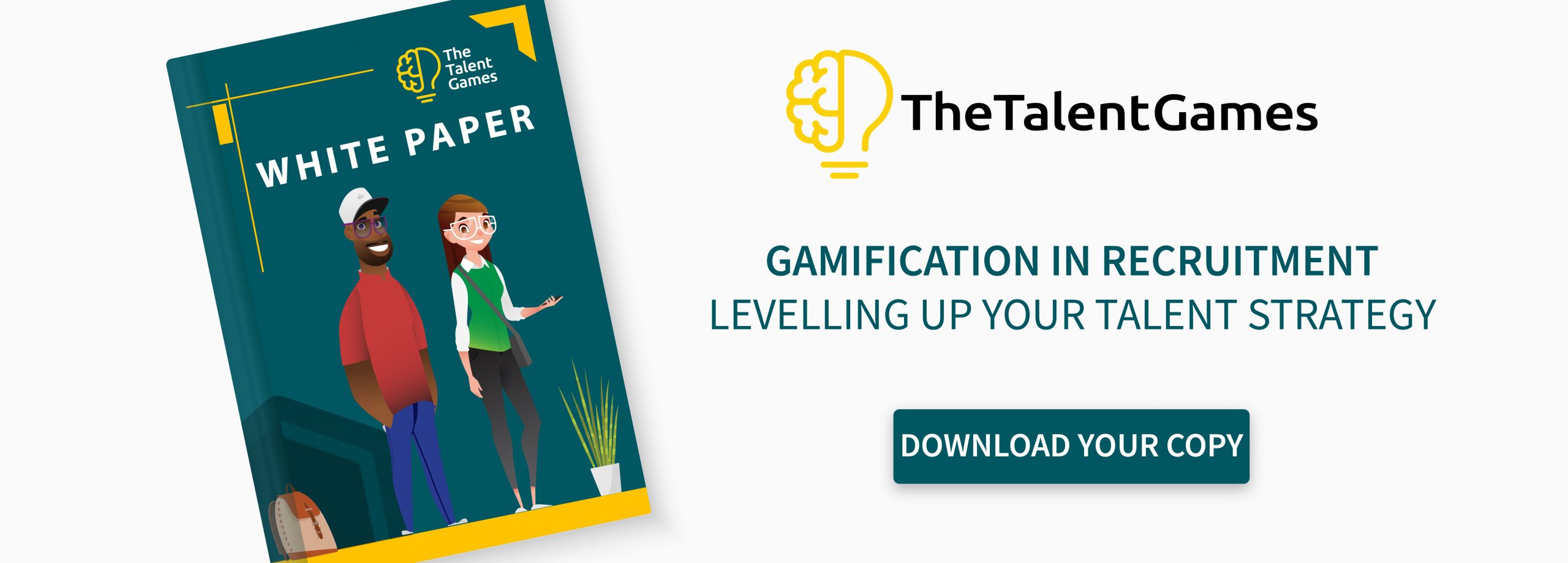Pandora’s box is open. Our life and businesses have been inexorably transformed by the pandemic – and the Human Resources department is no exception.
COVID-19 has upended the priorities of most HR professionals as they struggle with adapting to the new normal. From trying to bring in more resilience to their performance management system to adopting effective strategies for employee engagement, HR departments across the world are embracing technology to keep their business thriving in 2021.
Here are the top 8 trends that will shape the world of HR in 2021 and beyond, impacting the way we work:
HR Trend # 1: The Hybrid Workplace
Workplace has drastically changed over the years, especially in the past few months. For most of 2020, work cubicles, meeting rooms and office buildings have resonated eerie silence due to the Covid-19 crisis.
Now as we enter 2021 with the hybrid workplace model, employees are allowed flexibility to work both remotely and from the office. Things have changed; employees don’t need to be restricted to a specific spot. They can pick their desired spot and choose to work from even a café, a coworking space or any other corner of the world as long as their productivity doesn’t drop.
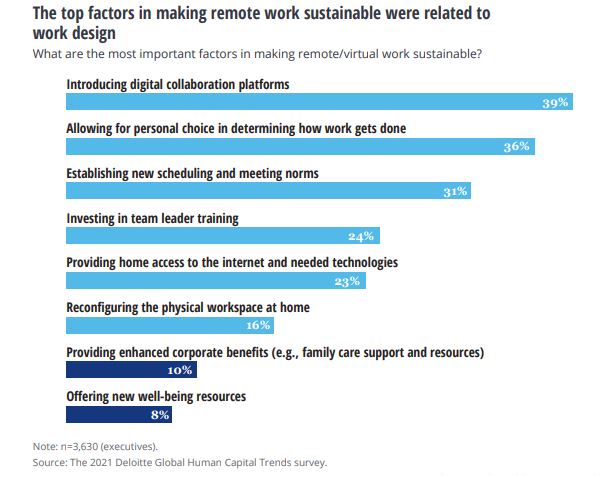
Since hybrid model brings down both cost and commuting time, it has a direct positive impact on the output of the organization – and therefore this is one of the top HR trends we need to look out for.
HR Trend # 2: A Data-Driven HR
HR departments deal extensively with data, and it’s time we put all those valuable insights to good use via HR analytics. Using big data, professionals can obtain deeper insights and thus make smarter decisions and predictions about the existing and future workforce. Even the business leaders can reap benefits from it.
What’s more, COVID-19 has galvanized HR departments into relying even more heavily on data-driven insights to guide their decision-making process. Data analytics can be applied to HR in a variety of metrics, such as absenteeism, offer acceptance rate, turnover rate, and revenue per employee. Moreover, HR managers may also use analytics to measure employee productivity and well-being as well get information on the causes for employee resignation.
HR Trend # 3: Learning About the Younger Workers
It’s an exciting time to be in the people profession as organizations are handling a multigenerational workforce: traditionalists, baby boomers, Generation X, and millennials, which make up over 50% of the global workforce today. Soon, Generation Z will also be entering the labor market.
As the number of young members increase in the workforce, they shakeup the traditional workplace with their values and career priorities, setting in motion fundamental change. Millennials and Gen-Zers want flexible hours to balance their lifestyle and also look for remote work option. As these generations grew up on gold stars and trophies, they have come to place high importance on collaboration, teamwork and contributing to the greater good. 60% of Gen-Zers want multiple check-ins from their managers weekly, if not daily.
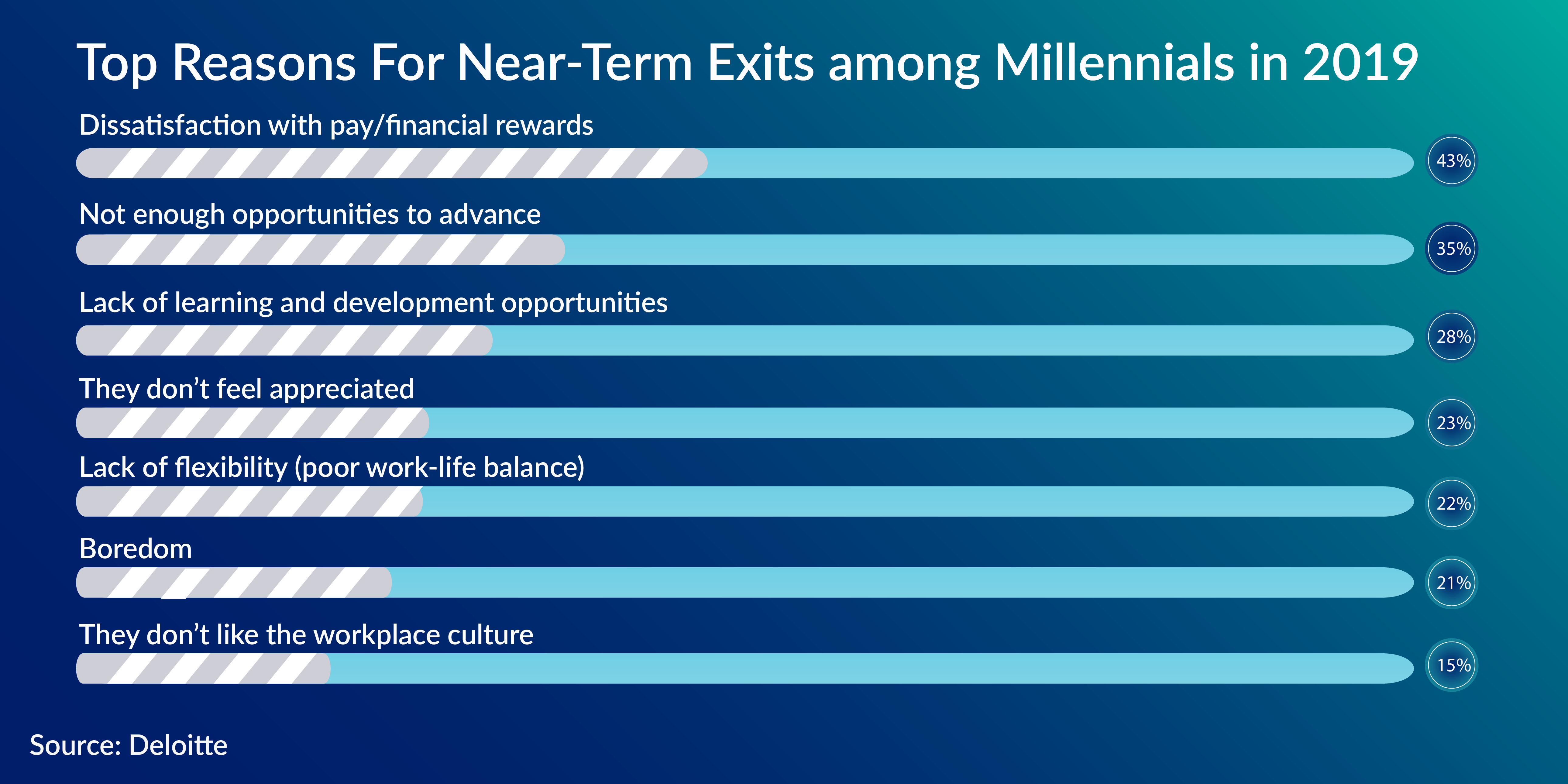
One of the top HR trends is understanding the working style of the younger employees, which ultimately will make it easier for Human Resources practitioners to develop corporate policies that keep them engaged and happy.
HR Trend # 4: Gamification
Gamification is the application of game elements in a non-game context, and will be a hot trend in 2021 as well as in the years to come. In the context of workplace, it’s a commonly used marketing technique to attract candidates and increase engagement.
The use of gamification in the hiring process in particular – also known as recruitainment – is becoming increasingly popular. Owing to the fact that most applicants and employees feel bored during the recruitment application process and training, gamification seems like a promising technology for both the employers and their workers.
No wonder, HR teams are already incorporating gamification as a “need-to-have” tactic in their recruitment, learning and development, sales and customer service management strategies.
HR Trend # 5: HR Teams Powered by Automation, AI & VR
Today, HR teams have a plethora of advanced technology at their fingertips, but Robotic Process Automation, Artificial Intelligence and Virtual Reality are gaining the most traction. For example, RPAs are making employee onboarding easier for HR. RPA tools can automatically update the applicant tracking system, and gather the new employee’s necessary documentation, leaving HR professionals to focus on higher-value tasks.
Similarly, HR leaders can use AI-powered tools to source, assess and screen applicants. AI also allows employers to improve their candidate experience, giving them edge in hiring top talent. The prediction that use of VR in the workplace will only increase in 2021 seems pretty safe; VR is providing human resources department opportunities to create innovative and cost-effective learning and development programs to meet their business needs. It is also being used to recruit and onboard digital-savvy job candidates.
Indubitably, RPA, AI & VR are not only one of the top trends that will dominate 2021 but will also prevail in the upcoming years.
HR Trend # 6: Emphasis on Skilling, Upskilling and Reskilling
While many businesses shut down in 2020, some resilient ones continued to offer new products and services to survive. In these extraordinary times, HR teams should retrain and upskill their employees and provide them the right training and knowledge so they’re prepared to handle any challenges ahead.
In fact, many HR practitioners are drawing away from crisis management and focusing on strengthening their organization, such as by building resilience and having the right skills and competencies. Indubitably, rather than constantly looking for new talent, the most effect approach is to ensure your team has the expertise to drive growth.
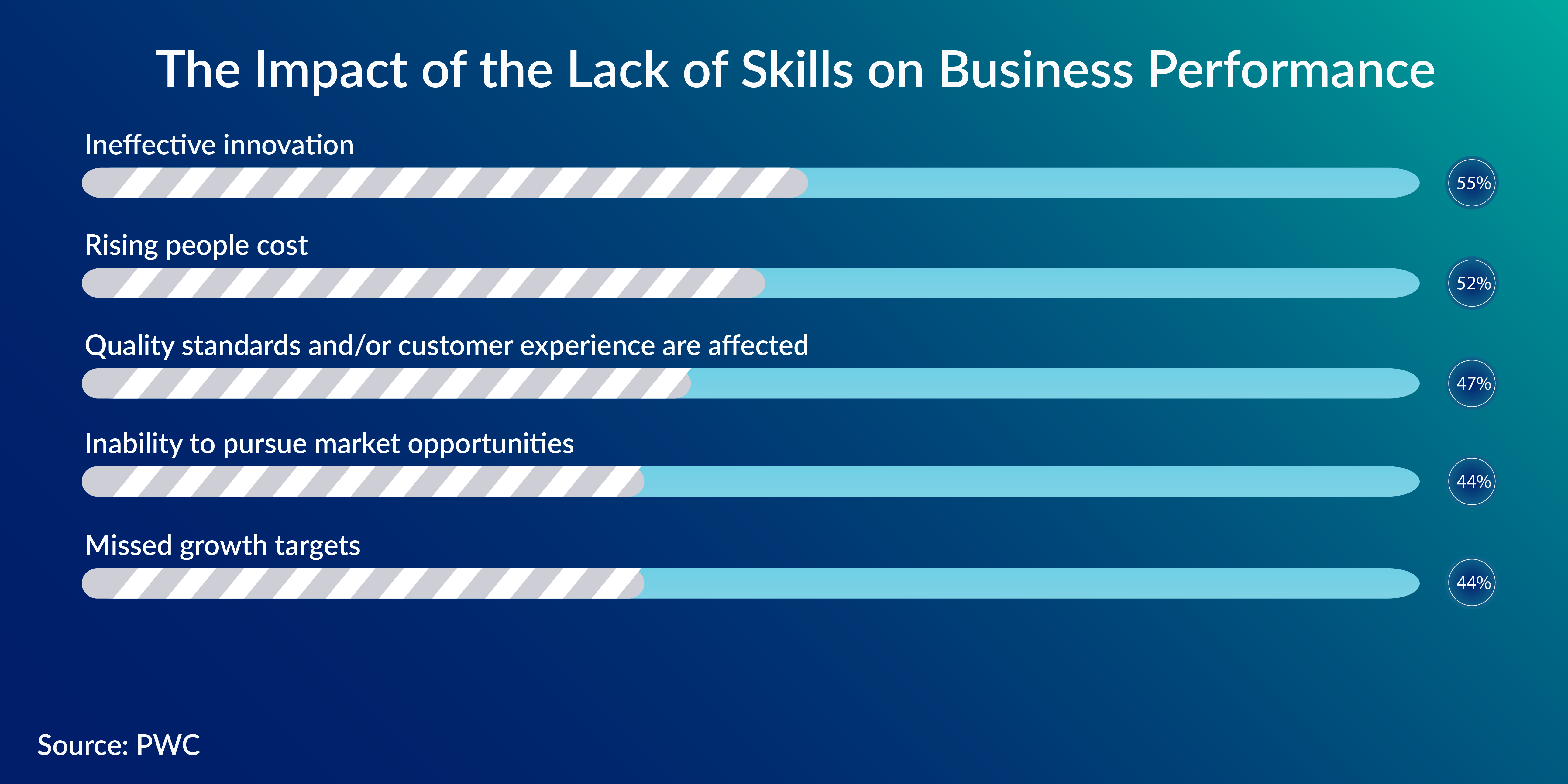
In Gartner, Inc.’s 2021 HR Priorities Survey, more than 750 HR leaders cited building critical skills and competencies as their number one priority in 2021, which shows that integrating learning experience into employee workflows will be one of the major HR trends in the field of learning and development in 2021.
In short, upskilling is imperative not just for employee growth but for the overall excellence and innovation of the organization.
HR Trend # 7: Employee Wellbeing and Mental Health
So while employee wellness and work-life balance programs have been common earlier, after the pandemic they have become one of the core areas HR professionals will focus on. This is because employees are now more stressed than ever.
Statistics show that COVID-19 and the resulting economic recession have negatively affected many people’s mental health and fueled the fire for those already suffering from mental illness and substance use disorders. During late June of 2020, the CDC found that 40% of US adults were struggling with mental health or substance abuse as a result of the pandemic.

It’s likely that employees’ job performance get affected due to pandemic-related mental health struggles. HR must ensure that they show empathy, offer their full support and resources to get help and make themselves available, so workers can voice their fears or ask any questions they may have.
Now the responsibility falls on employers to offer wellness programs, so their workers remain in good health, stay productive and feel more engaged at work. Organizations can allocate funds to the employee assistance program (EAP) as well as use video applications like Skype, Zoom, and Microsoft Teams to promote wellness-focused webinars to off-site personnel.
Taking care of your employees’ wellbeing is undoubtedly one of the top HR trends that organizations cannot afford to ignore.
HR Trend # 8: The Gig Economy
Gone are the days of conventional employment techniques when everyone was looking for a full-time job. Many employees are now opting for the gig system as it allows for high degree of autonomy and independence, which contributes to a stronger work-life balance. As a matter of fact, experts predict that 40% of Americans will be independent contractors by 2020.
In order to deal with this transition of the traditional environment, HR professionals and senior management need to adopt new strategies to keep their workforce agile, nimble and efficient. That being said, freelancers cannot be handled the like full-time employees. You cannot call them on a short notice or expect them to devote a specific number of hours every week. All you need to ensure is you get the job done.
The Final Word
Now that you’ve explored the top HR trends of 2021, you must have realized that the future holds many exciting things for you. Technology is revolutionizing the way we work, but now it’s upon us how we leverage it to ease the burden of our time-consuming tasks, increase productivity of our employees or improve employee engagement and retention.
